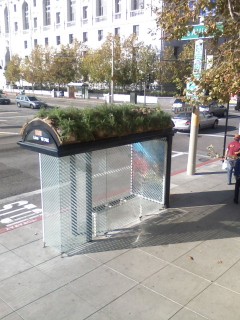Bullet points of life:
- Excellent long walk last night in the crisp chilly air. I was having one of those “everything looks bright and beautiful, I can’t believe my camera batteries died” kind of days.
- Stopped by the Dolores Park Cafe early this morning to do some quick editing and updating, then did the part-Muni/part-walking trip into the rest of my day.
- I’ve been reaching out and networking with new folks in different creative disciplines.
- I spoke to a previous boss yesterday and we talked about how things are going and about meeting up for lunch.
- Looking forward to a low-key Friday night (though unhappy that a couple of people I know have betrayed someone else — karma will be a bitch).
- My weekend will be relatively busy seeing folks and going to an interesting Sunday-evening event.
- Was thinking earlier about how I have been TV-free for a good while now and how much I love it. I watch a couple shows on Hulu once in awhile and I borrow DVDs from the Library, resulting in significantly higher-quality viewing in few hours.
- More tinkering with this site; always working on little improvements!


